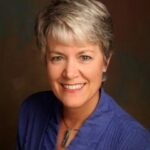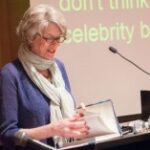Next up on the Museum of Fine Arts Boston FM-Accessible Tour Schedule–Americas: Making Modern

Americas: Making Modern
Museum of Fine Arts
Sunday, February 5 – 10:30 AM
Registration begins on January 9 and closes on January 27
A five-gallery exhibition on the third floor of the MFA’s Art of the Americas Wing explores what it meant to be in the vanguard of Modern art in the 20th century. From Frida Kahlo to Jackson Pollock, original voices of Modern artists working in the Americas were influenced by a variety of contemporaries, teachers, rivals, and friends. Incorporating diverse sources of inspiration, 20th-century painters took their artistic practice in dramatic new directions. Each gallery represents a moment—from Mexico City to New York to Boston—illustrating the evolution of Modern art in North America. Featuring new acquisitions, rarely seen loans, and masterpieces from the MFA’s collection, the installations provide fresh perspectives on Modern artists working in the 20th century.
How to Pre-Register for MFA Accessible Guided Tours
Attendance is limited and pre-registration is required by the dates listed for each program. To pre-register or for more information, email lwarren@mfa.org or phone 617-369-3302.
When you register, please indicate (in the subject line if you are emailing) the name of the tour and if you would like a neckloop or headset for the tour.
Registered participants will receive a confirmation prior to the date of the tour with entrance and cancellation information.
Because the Gallery Tour Listening System equipment is reserved for hearing loss support group participants, the equipment is not available to other MFA Boston visitors for drop-in tours. For that reason, guests of this program are requested to be aware of the the following policies:
- Participants who register for accessible tours but cannot attend should note the cancellation policy on the confirmation to ensure that listening equipment is available to other visitors.
- Late registrations cannot be accepted.
- Those who have not pre-registered may only join a tour on a standby basis and will be turned away if registration is full.
Tours will begin promptly at start time. Attendees should arrive 15 minutes prior to start time.
Questions? Contact the museum at lwarren@mfa.org or phone 617-369-3302.











